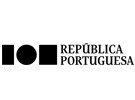


Publication in the Diário da República: Despacho nº 14312/2015 - 02/12/2015
4 ECTS; 3º Ano, 2º Semestre, 30,0 PL + 30,0 TP + 4,0 OT , Cód. 912362.
Lecturer
- Bruno Miguel Santana Chaparro (1)(2)
(1) Docente Responsável
(2) Docente que lecciona
Prerequisites
Not applicable.
Objectives
The objective of the curricular unit is to introduce the skills necessary to master the main areas of industrial automation. The objective skills are knowledge of the main sensors used to control industrial processes, knowledge of actuation systems, namely pneumatic, hydraulic and electrical technologies. One of the specific objectives is to understand the predecessor methods of current automation, in order to be able to understand and deal with older installations. The most important objective is to gain the ability to develop and implement algorithms in automatic systems controlled by PLCs.
Program
1. Introduction to automation
1.1. Introduction to Automation
2. Sensors and actuators
2.1. Actuators
2.1.1. Electric actuators
2.1.2. Pneumatic actuators
2.1.3. Hydraulic actuators
2.1.4. Magnetic actuators
3. Electric logic circuits
3.1. Wired logic circuits
4. Programmable Logic Controllers (PLCs)
4.1. Inputs
4.2. Outputs
4.3. Technical specifications
5. PLC programming
5.1. Digital inputs
5.2. Analogic inputs
5.3. High speed inputs
5.4.Digital outputs
5.5.Analogic outputs
5.6.High speed outputs
6. Automatic control
6.1.Introduction
6.2.Applied examples
Evaluation Methodology
Assessment will be carried out every season through a written test (50% grade weight) and ten theoretical-practical assignments carried out throughout the semester (50% grade weight). Passing to the discipline is obtained by obtaining the minimum assessments defined in the IPT regulations. The criteria are identical for all students, including students with working-student status.
Bibliography
- Francisco, A. (2003). Autómatos Programáveis. (Vol. NA). Portugal: LIDEL
- Pires, J. (2012). Automação Industrial. (Vol. NA). Portugal: ETEP
Teaching Method
Lectures, tutorials and laboratory classes
Software used in class
Schneider Zelio Soft 2
Omron CX Programmer
Nb Designer
Siemens Simatic Step 7
Siemens Simatic WinCC Flexible
















